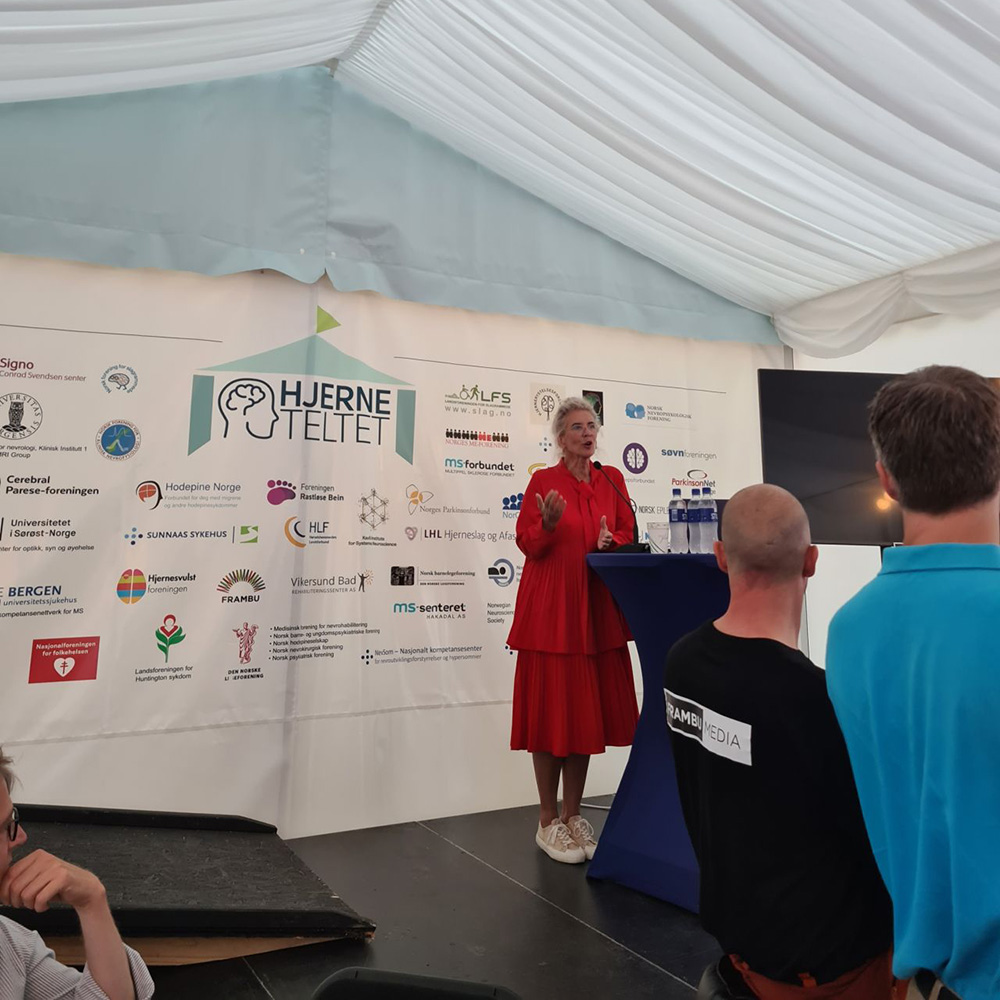AI-Mind debates on the role of AI in transforming healthcare at the largest political gathering in Norway
As the coordinator of the AI-Mind project, Oslo University Hospital (OUS) was present at a debate on the transformative potential of AI during Arendaluska week. The series of events held during Arendalsuka, Norway’s largest annual political gathering, embodies a clear purpose: to strengthen the foundations of political empowerment and democracy through inclusive discourse and active engagement. Rooted in the pursuit of open dialogue and participation, this important gathering provides an ideal platform for diverse stakeholders to collectively address critical issues and contribute to the advancement of informed decision-making.
This year, AI-Mind contributed significantly to the debate by hosting one and participating in two others.
Event 1: Shaping Norway’s Healthcare Future Through AI
The AI-Mind project’ was invited to speak at a debate on the future of healthcare in Norway. Here, Vebjørn Anderson, a representative of OUS and the AI-Mind project, contributed to a panel discussion on the transformative potential of AI in reshaping Norway’s healthcare landscape. The panel, which included representatives from academia, healthcare, industry, and two members of the parliaments, emphasised the importance of public policy in guiding the integration of AI into healthcare systems. In particular, AI-Mind highlighted the pressing need for a robust data infrastructure to support the paradigm shift towards data-driven healthcare.
Event 2: Collaborative Data Access for AI Advancements
On 16 August, the AI-Mind project was a key part of a pitching session organised by the “Brain Council” of Norway (Hjernerådet). During this session, Dr. Ira Haraldsen, the project coordinator, delivered a succinct pitch outlining the need for cross-European collaborations to access the rich data needed to develop, train, and validate AI models. The emphasis was on forging connections with European initiatives like EBRAINS to improve the integration of other European countries into the broader AI research community.
Event 3: Contributing to Early Dementia Diagnosis with AI
On the same day, 16 August, AI-Mind hosted an engaging session that addressed critical questions of how to strengthen clinical research to pave the way for improved treatments for brain disorders in the coming years. With many brain disorders still lacking effective treatments due to a limited understanding of their underlying causes, they continue to pose a growing burden on society. Relying on clinical research and innovation is essential to address this pressing challenge. The debate focused on how AI technology can contribute to the accuracy and efficiency of early diagnosis of dementia, impacting the lives of countless individuals.
Visit our website and follow us on social media channels to keep up to date with the project’s news. You can also subscribe to the new quarterly study newsletter here to stay informed. By subscribing, you’ll gain a deeper understanding of the project’s progress and its potential impact on dementia research.

